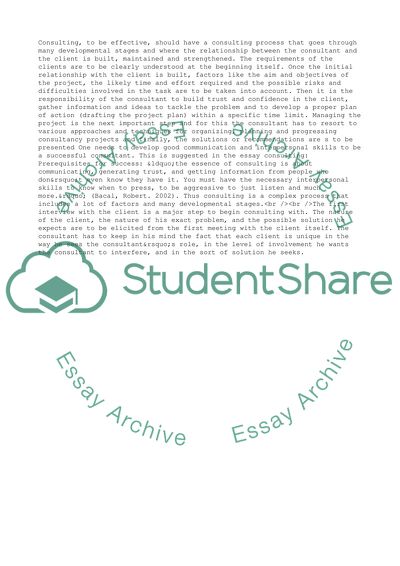Cite this document
(The Steps in the Consultancy Process Essay Example | Topics and Well Written Essays - 2000 words, n.d.)
The Steps in the Consultancy Process Essay Example | Topics and Well Written Essays - 2000 words. Retrieved from https://studentshare.org/management/1707344-consultancy-skills
The Steps in the Consultancy Process Essay Example | Topics and Well Written Essays - 2000 words. Retrieved from https://studentshare.org/management/1707344-consultancy-skills
(The Steps in the Consultancy Process Essay Example | Topics and Well Written Essays - 2000 Words)
The Steps in the Consultancy Process Essay Example | Topics and Well Written Essays - 2000 Words. https://studentshare.org/management/1707344-consultancy-skills.
The Steps in the Consultancy Process Essay Example | Topics and Well Written Essays - 2000 Words. https://studentshare.org/management/1707344-consultancy-skills.
“The Steps in the Consultancy Process Essay Example | Topics and Well Written Essays - 2000 Words”. https://studentshare.org/management/1707344-consultancy-skills.


